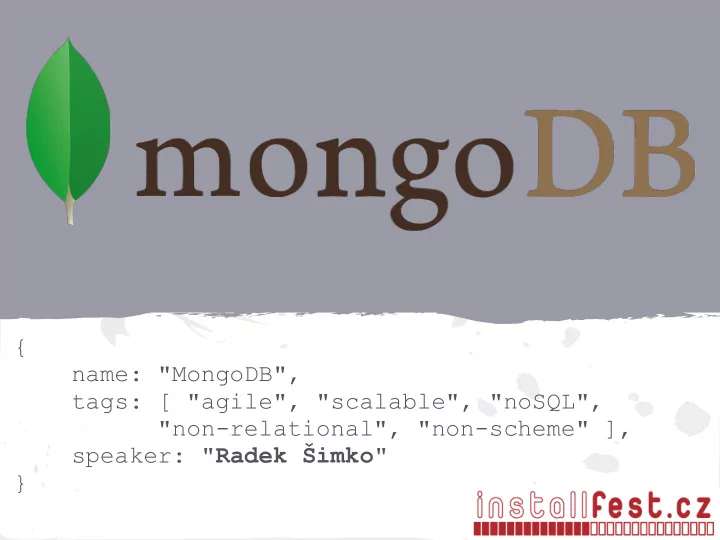

{ name: "MongoDB", tags: [ "agile", "scalable", "noSQL", "non-relational", "non-scheme" ], speaker: " Radek Šimko " }
~ $ whoami facebook.com/ radeksimko twitter.com/ radeksimko plus.google.com/ 105226520260545998888 linkedin.com/in/ radeksimko foursquare.com/ radeksimko last.fm/ maarlin
What do we monitor?
Few of our recipes
Why MongoDB?
So what is MongoDB?
Document-oriented
Easy to use API
Language Drivers ● C ● C++ ● Erlang ● Haskell ● Java ● Javascript ● .NET (C# F#, PowerShell, etc) ● Perl ● PHP ● Python ● Ruby ● Scala
Indexes ● compound A - B - C = A = A - B ● sparsed
Replica Sets RS1 RS2 RS3
Sharding RS1-A RS2-A RS3-A RS1-B RS2-B RS3-B
What cannot Mongo do? - Fulltext search - relations (foreign keys, joining tables) - SQL - triggers - authentication (when sharding)
It's open! git clone git://github.com/mongodb/mongo.git
It's under development! Always use latest STABLE version.
> db. mongodb_users .find();
We are looking for talented developers!
Recommend
More recommend